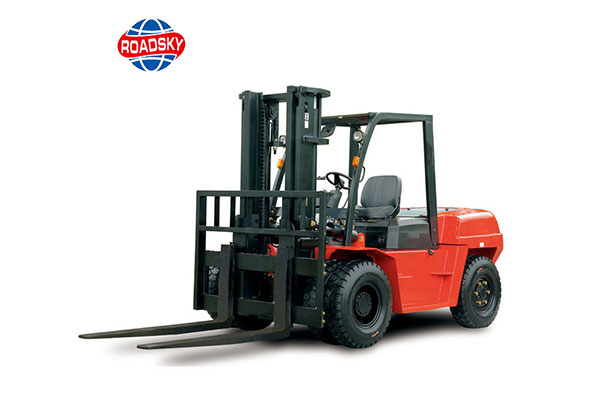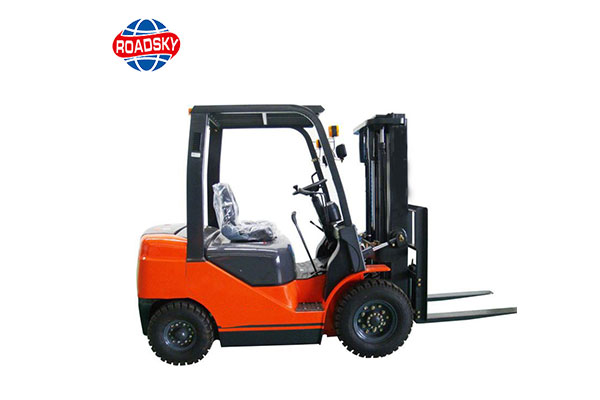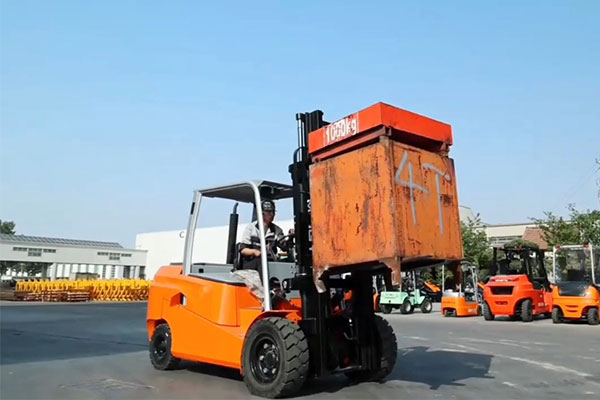Advantages and Disadvantages of Diesel Forklift
Diesel forklifts are a popular choice for material handling in industries ranging from construction to logistics. While they offer impressive power and durability, they also come with certain limitations. This article will explore the key advantages and disadvantages of diesel forklifts to help you decide whether they suit your operational needs.

Advantages of Diesel Forklifts
1. High Power and Torque
Diesel engines are known for their robust power and high torque output, making diesel forklifts ideal for heavy-duty applications. They can handle substantial loads and perform well on uneven or rough terrain, making them a favorite in outdoor environments such as construction sites or lumber yards.
2. Fuel Efficiency and Long Runtime
Diesel fuel packs more energy per gallon than other fuel types, allowing diesel forklifts to operate for longer periods without refueling. This makes them cost-effective for large-scale operations with extended hours.
3. Durability and Longevity
Diesel forklifts are built to withstand rigorous use and extreme conditions. Their engines are designed for long-term durability, often lasting longer than electric or gas-powered alternatives with proper maintenance.
4. Fast Refueling
Unlike electric forklifts, which require hours to recharge, diesel forklifts can be refueled quickly, minimizing downtime during operations. This is particularly advantageous in high-demand workplaces.
5. Versatility
Diesel forklifts can be used in a variety of environments, including outdoor and semi-indoor settings, thanks to their ability to perform well in adverse weather and on rugged terrain.

Disadvantages of Diesel Forklifts
1. Emissions and Environmental Impact
Diesel forklifts produce higher emissions compared to electric and LPG (liquid propane gas) forklifts. This makes them less eco-friendly and unsuitable for environments where air quality is a priority, such as indoor warehouses.
2. Noise Pollution
Diesel engines are noisier than their electric or LPG counterparts. In workplaces where noise levels need to be minimized, diesel forklifts can be disruptive.
3. Higher Initial Costs
Diesel forklifts often have a higher initial purchase price. While they offer long-term savings through durability and efficiency, the upfront investment may not be suitable for all budgets.
4. Maintenance Requirements
Diesel engines require regular maintenance, including oil changes and filter replacements. While they are durable, neglecting upkeep can lead to costly repairs over time.
5. Limited Indoor Use
Due to their emissions and noise, diesel forklifts are less suitable for indoor environments. They are best suited for outdoor or well-ventilated settings.

When to Choose a Diesel Forklift?
Diesel forklifts are ideal for businesses that:
- Operate primarily outdoors.
- Require lifting heavy loads.
- Need equipment for long shifts without downtime for charging.
- Have budget considerations favoring long-term fuel efficiency over initial costs.
Conclusion
Diesel forklifts offer power, efficiency, and durability, making them well-suited for heavy-duty tasks and outdoor environments. However, their emissions, noise levels, and maintenance requirements may pose challenges, especially in indoor or eco-conscious settings.
By weighing these advantages and disadvantages, you can make an informed choice that aligns with your business goals.
For more solutions about forklifts and other industrial equipment, please contact us for more information.

